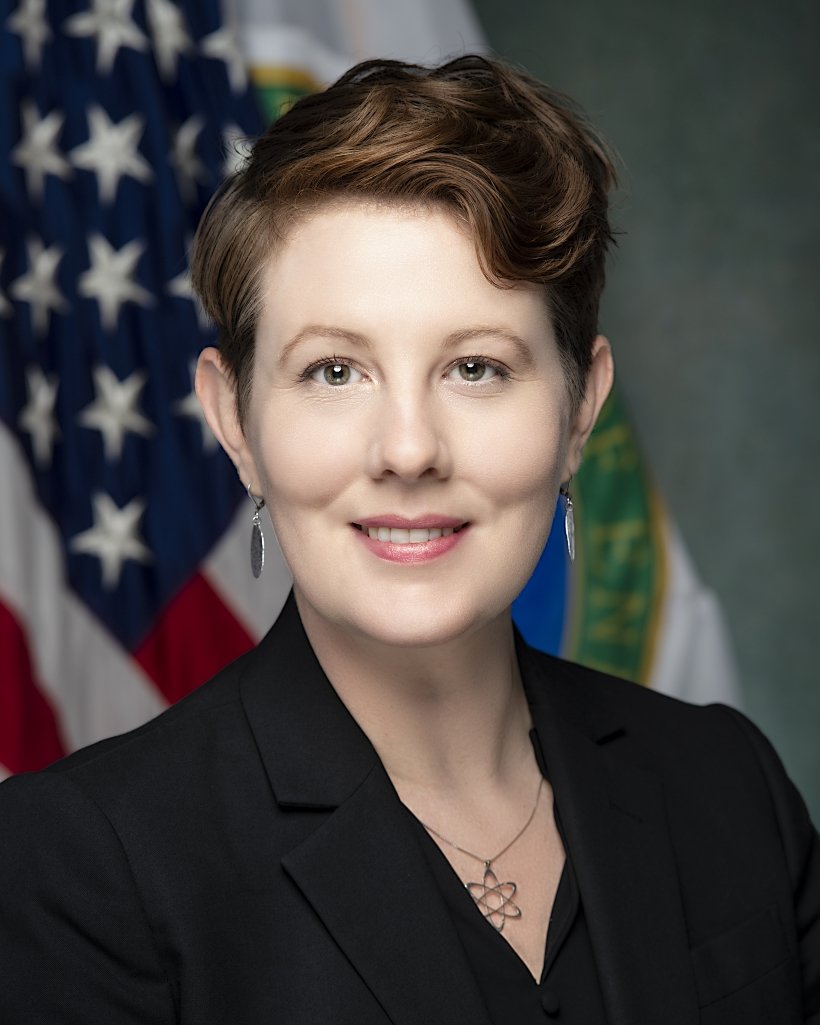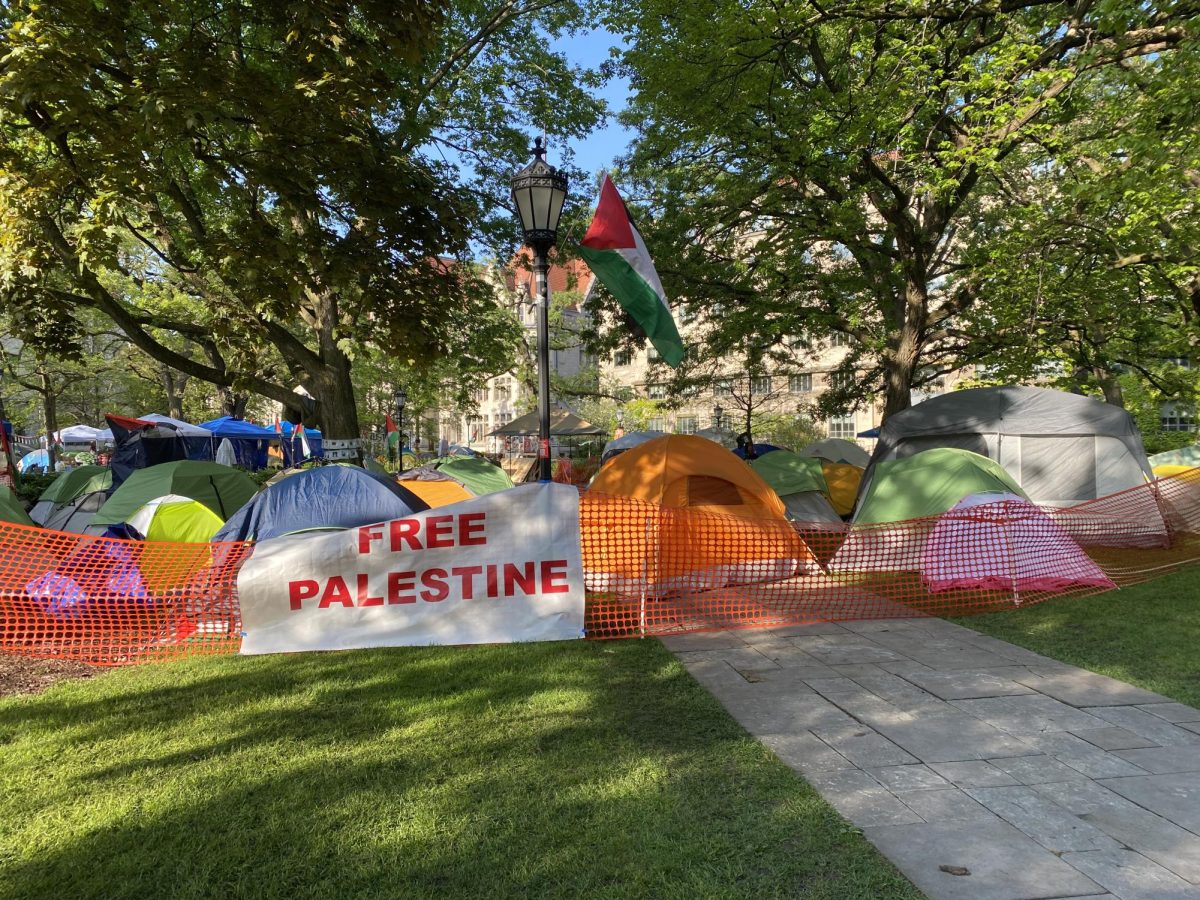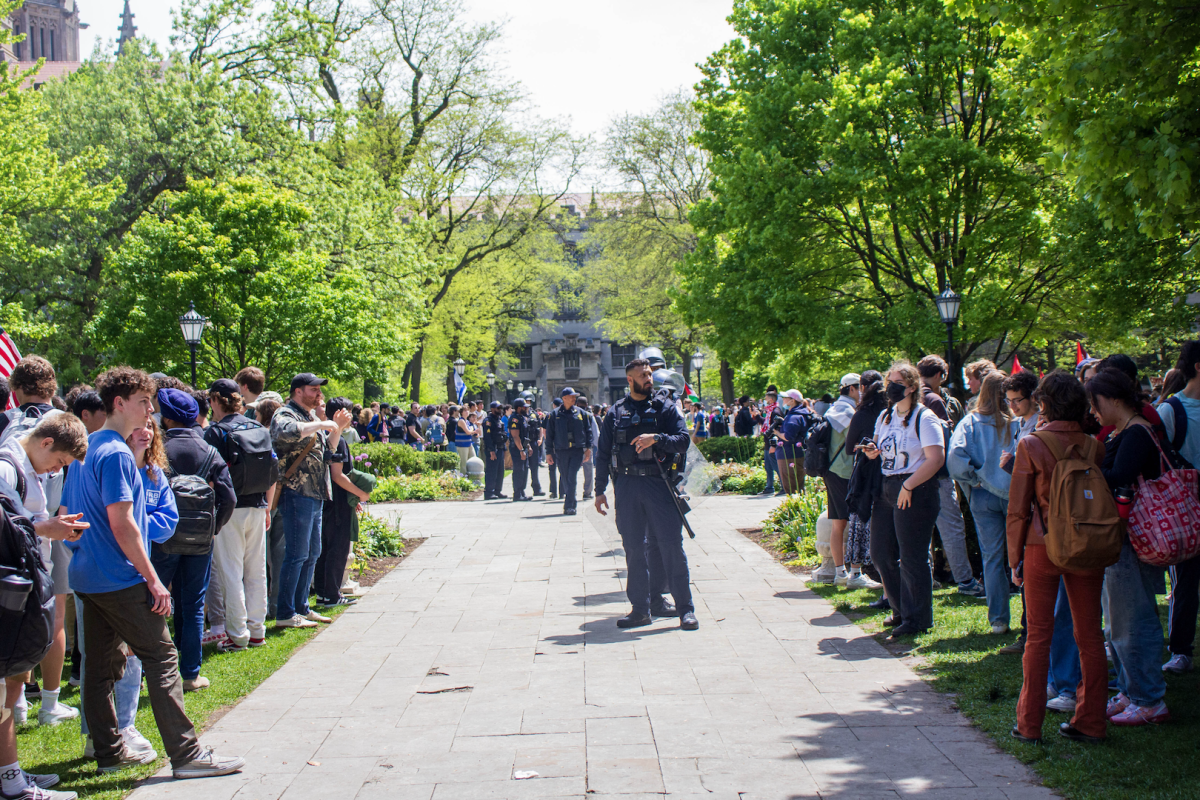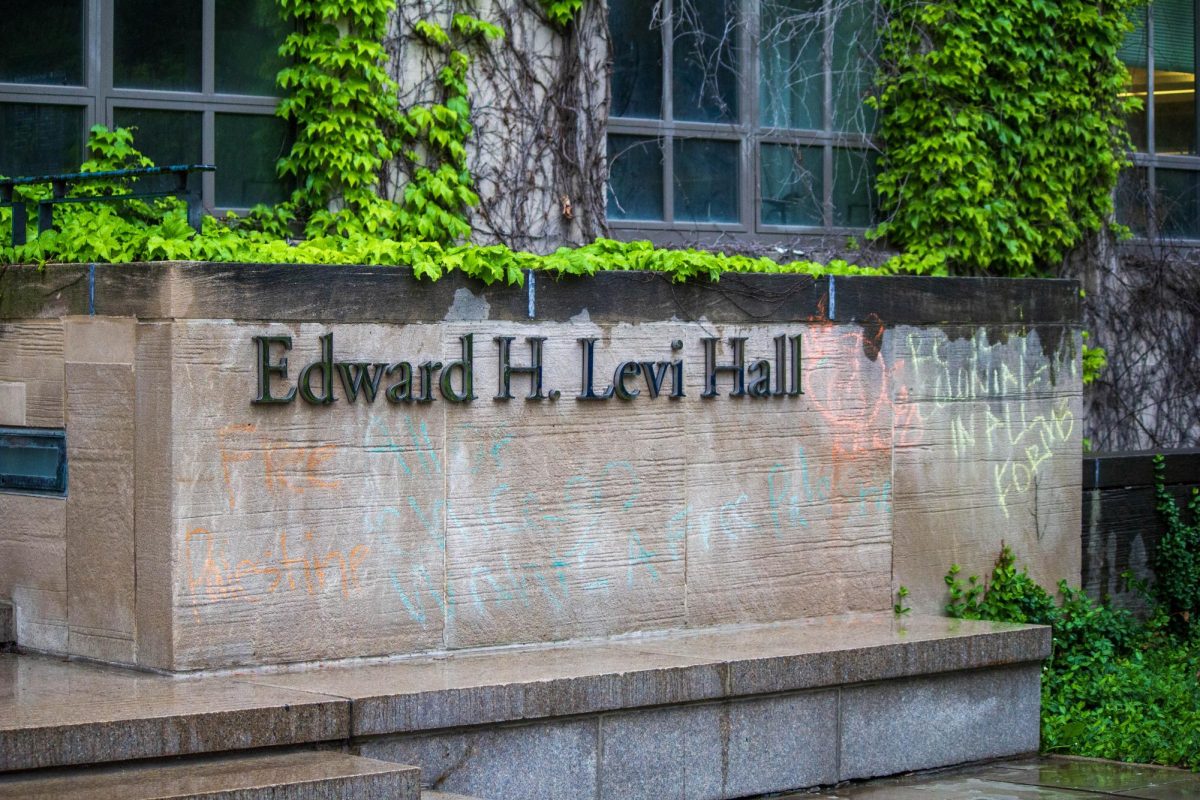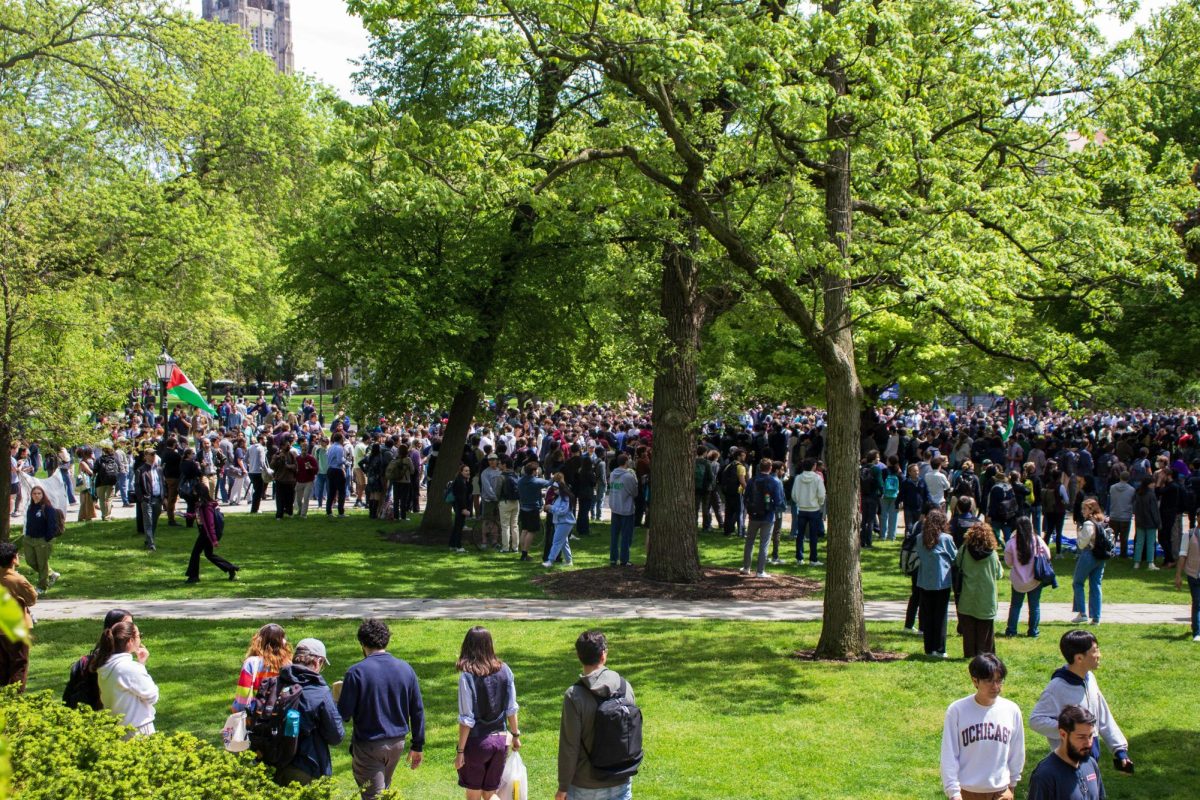With Hollywood blockbuster Oppenheimer reigniting fascination in all-things-nuclear, The Maroon sat down with Assistant Secretary of the Office of Nuclear Energy Dr. Kathryn Huff (A.B. ’08) to speak about her background, what she hopes to accomplish during her tenure in the Biden administration, and how the University helped shape who she is today. Huff currently serves within the U.S. Department of Energy (DOE) and is a major advocate for achieving net-zero greenhouse gas emissions by 2050 with the help of nuclear energy.
In her current capacity, Huff is responsible for overseeing the nation’s $1.7 billion portfolio in the civil nuclear energy research and development enterprise. She was nominated to serve in this role by President Joe Biden in January 2022 and was confirmed by the Senate in May with an 80 to 11 bipartisan vote. Huff credits the University’s early involvement in the development of nuclear energy for sparking her interest in the field nearly a decade and a half ago, when she received an undergraduate degree in physics. “A lot of my inspiration to go [to the University] was reading The Making of the Atomic Bomb…because a huge part of that book, along with the Manhattan Project history itself, takes place at the University of Chicago.” The Making of the Atomic Bomb details the history of nuclear fission through the Manhattan Project and the Hiroshima and Nagasaki atomic bombs.
She also recalls memorable moments while attending the University, such as taking a Big Problems course from agricultural economist George Tolley, spending a summer in Chile doing materials physics research, and riding public transportation for the first time. “Just the pure experience of being in a place so steeped in history and surrounded by society changed me, and I am now a much more cosmopolitan individual than I was when I started,” she said.
After having attended institutions such as the University of Wisconsin for her Ph.D. from 2008 to 2013 and the University of California, Berkeley for her postdoctoral degree from 2013 to 2016, Huff found the philosophy courses at the University of Chicago most memorable. “If you want to talk about specifically University of Chicago features of my personality, the tendency to think hard about how I’m thinking has stuck with me,” she said.
Huff initially considered becoming a nuclear engineer but chose to work in academia and policy as she is deeply passionate about the role of nuclear energy in mitigating climate change. Huff insists the urgency of achieving net-zero emissions by 2050 is undeniable from an international and national perspective, in which the U.S. has already made commitments on a world stage.
Nuclear energy, which originates from the process of splitting uranium atoms called fission, is currently the largest single source of carbon-free electricity in the United States, producing more than half of carbon-free electricity. In conjunction with increased development in renewable energy, “many unilateral institutions have assessed that we need to double or possibly triple the amount of nuclear power in the world by 2050,” Huff said.
Huff is cognizant of the need for clean firm power, which is defined as power on the grid regardless of the weather. Renewable alternatives like wind and solar energy are intermittent—they produce only when the sun is shining or when the wind is blowing. Limitations in technology for long duration energy storage in the domestic grid further increases demand for firm, nuclear power. “Our estimate is that we need between 550 to 770 new clean firm gigawatts of power, of which 100-200 will have to be nuclear,” she said.
Huff advises against comparing the capacity of alternatives to that of nuclear power via measuring gigawatts. “[Some] people forget when you build one gigawatt of some generation source, it is not the same as nuclear, because nuclear performs at a 92% capacity factor or higher,” Huff said. Nuclear, in contrast to other types of generation that run 20-40% of the time, is always running. Therefore, she prefers the metric of gigawatt hour, or the amount of electricity generation of one GW over an hour, which is more accurate to the efficiency of various energy types.
Huff shares immense optimism about the resources and funding available in the Biden administration to rapidly meet the 2050 date, citing the Creating Helpful Incentives to Produce Semiconductors for America (CHIPS) Act, Science Act, and Inflation Reduction Act. One key area of growth, Huff notes, is the expansion of uranium enrichment, a key contributor to creating nuclear fuel. Given that Russia has been the largest supplier of enrichment services in recent years, Huff aims to increase U.S. independence on sourcing and making its own nuclear fuel.
Additionally, Huff has high expectations for the optionality and commercialization of small modular reactors, or SMRs. “There are lightwater small modular reactors that we would refer to as Generation III+…like the VOYGR-6 or Westinghouse AP300 that represent a shrinking of standard designs that we have across the conventional set of reactors today,” she said. Huff anticipates greater demand from utilities and industrial interests alike to meet new standards.
When asked about combatting preconceptions and biases surrounding nuclear energy, Huff maintains confidence in younger generations. More people agree upon the inclusion of nuclear energy in the energy mix, a result she says springs a generational shift in opinion. “Whereas folks older than me and my parents’ generation saw the biggest existential threat to humanity as the atomic weapon…people in my generation see the biggest threat as climate change.”
When asked whether she watched the pop-culture phenomenon Oppenheimer, Huff was eager to note fellow Secretary at the Department of Energy Jennifer Granholm’s role in overturning the decision to strip J. Robert Oppenheimer of his security clearance in 2022, which was omitted from the movie. Otherwise, “I loved it,” Huff said.



